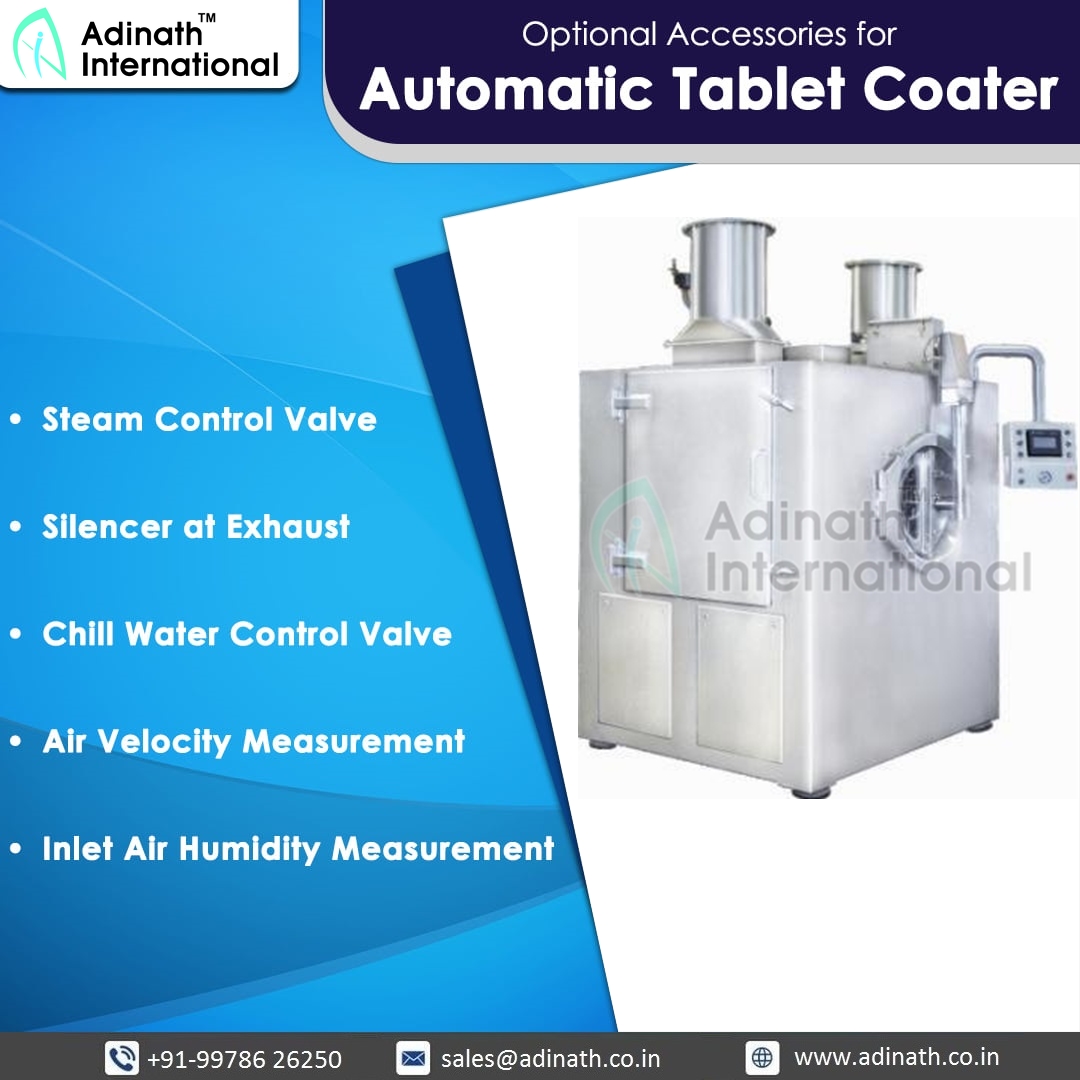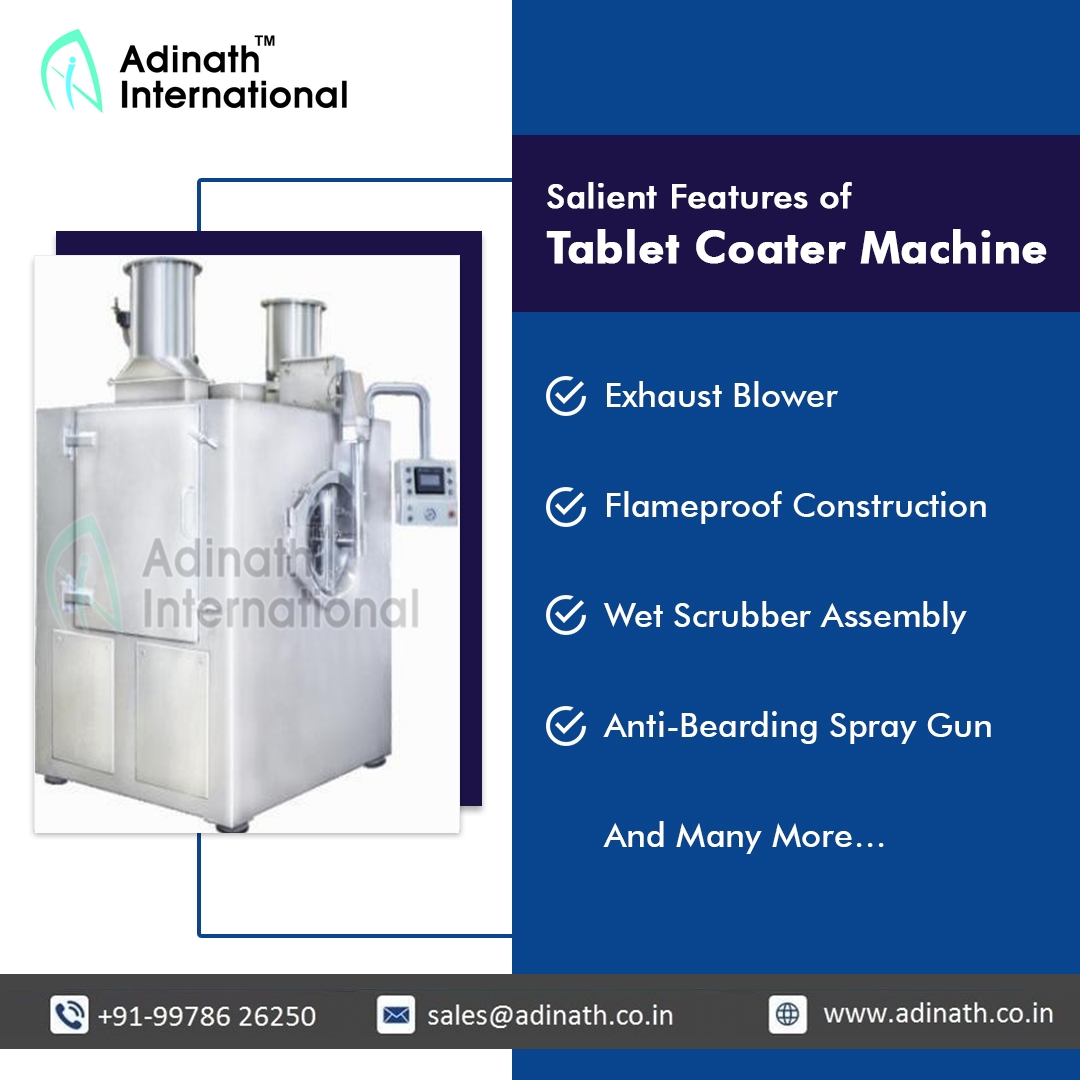Pharmaceutical production is an essential component of the healthcare sector since it guarantees that patients who require certain medications have access to them. Pharmaceutical manufacturing has seen a transformation in recent years thanks to tablet coater technology, which has improved productivity, cost-effectiveness, and safety.
Drug research, development, production, and distribution are all parts of the process of making pharmaceuticals, along with other medical items. The coating of tablets to shield them from moisture, light, and other external variables is one of the key steps in pharmaceutical manufacture. Pharmaceutical production has been transformed in recent years by the adoption of tablet coater technology, making it more effective, economical, and secure.
Tablet Coater Technology’s Benefits for Pharmaceutical Manufacturing
There are various benefits to using tablet coater technology in pharmaceutical production, including:

Technology for Tablet Coaters Lowers Costs
The expenses related to producing pharmaceuticals can be decreased utilizing tablet coater technology. By eliminating the requirement for physical labor during the coating process, labor expenses may be reduced. The quantity of raw materials needed can be decreased by using tablet coater technology, which can save material prices.
Many pharmaceutical companies struggle to manage output. Time-to-market, budgets, and product margins are frequently impacted by decisions. By enhancing coating consistency, decreasing coating solution waste, and minimizing cleaning and maintenance, advanced tablet coating methods improve manufacturing efficiency. This increases productivity while lowering operating expenses.
The coating pans used in high-efficiency tablet coaters are longer in length but smaller in diameter, allowing the tablets to enter the spray zone more frequently and removing the slow-moving zones that are frequently present in traditional tablet coaters.

Tablet Coater Increases Productivity
The pharmaceutical production process can be made substantially more effective by using tablet coater technology. The coating procedure can be automated, requiring less manual labor and enhancing efficiency and precision. The production of more tablets in less time is achievable with the use of tablet coater technology, which can also save the time needed for the coating procedure. Advanced coating technologies that minimize waste, boost processing effectiveness, and guarantee quality are necessary for this.
The active component (API) is shielded from deterioration and given a coating to improve stability and performance. Additionally, they can be employed to regulate drug release and cover up the taste, odor, or color of the tablets.
Flexible Tablet Coater Technology
A particularly adaptable dose form are tablets. They shorten development lead times by enabling on-demand production. They can be made in tiny quantities using a variety of APIs.
These tablets’ adaptability allows for on-demand formulation testing as well. This can reduce testing time and costs and allow for a more flexible approach.
The technology can also produce a huge variety of release kinetics and modes. This makes it possible to customize the drug’s release profile, which is perfect for formulations that comprise active pharmaceutical ingredients (APIs).

Tablet Coaters Technology Applications
The pharmaceutical business uses tablet coater technology in a variety of ways. The creation of controlled-release tablets is one of the most important uses. In order to increase patient compliance and lessen adverse effects, controlled-release pills are made to release the active component gradually over time. The creation of taste-masked tablets is another use for tablet coater technology. Some medications taste bad, which can make them challenging to give. The flavor of the medicine can be hidden using tablet coating technology, making it more acceptable for patients.
Tablet Coaters Technology Future
The tablet coater technology is still developing, and there are a number of ways it could be made better. The creation of more effective coating materials is one area that needs improvement. New coating materials have the potential to increase coating process efficiency, lower production costs, and offer new capabilities.
The creation of more sophisticated tablet coater machines is another area that needs progress. The quality and consistency of the coated tablets can be improved by greater coating control offered by new machines.
The development of tablet coater technology has changed the coating of tablets, making it more affordable, effective, and scalable. The future of tablet coater technology appears promising with the continuous development of increasingly effective coating materials and cutting-edge tablet coater equipment.


